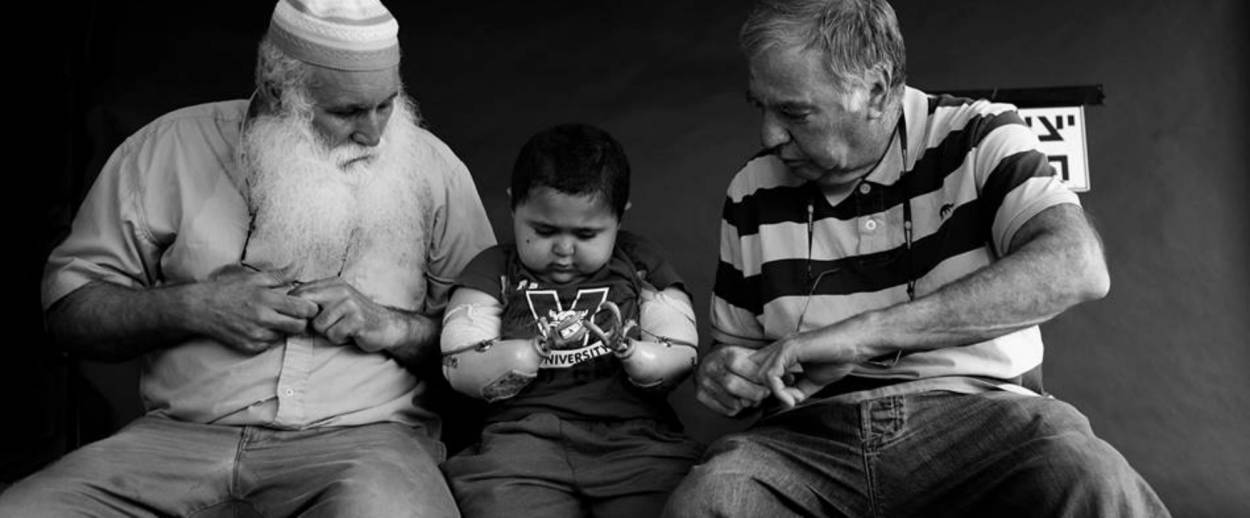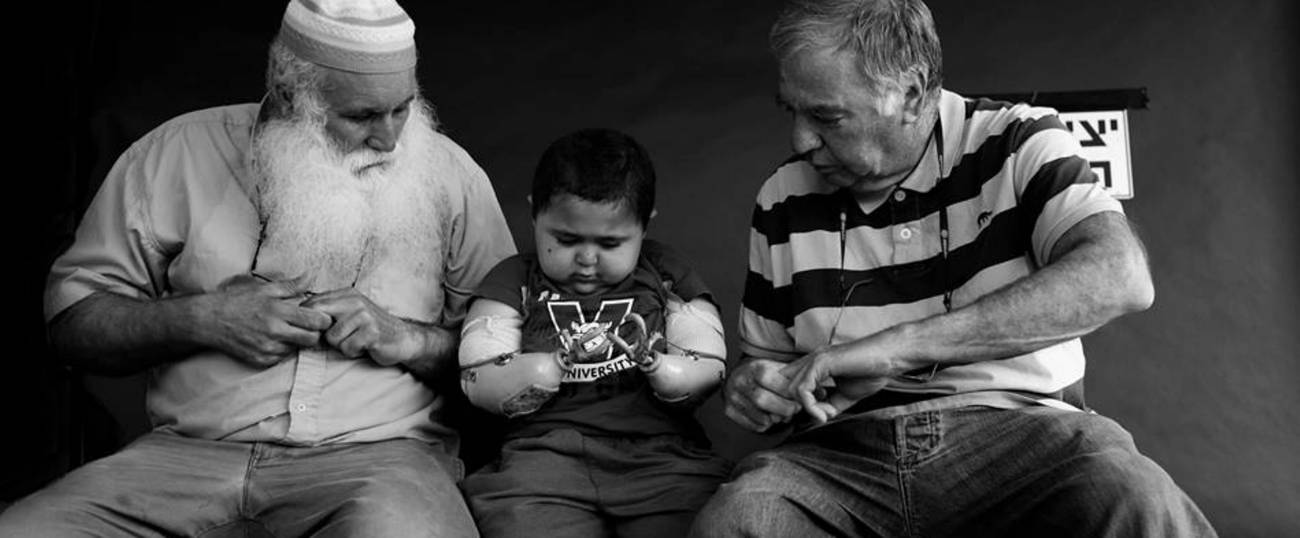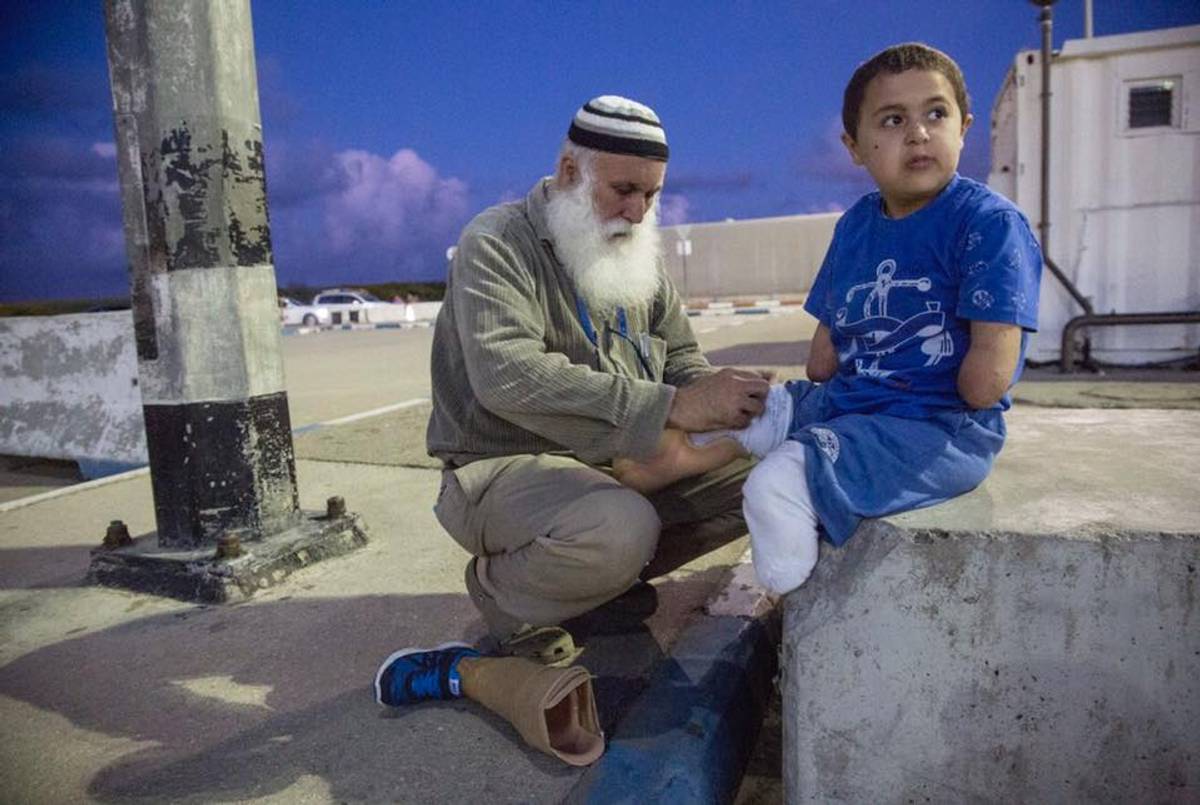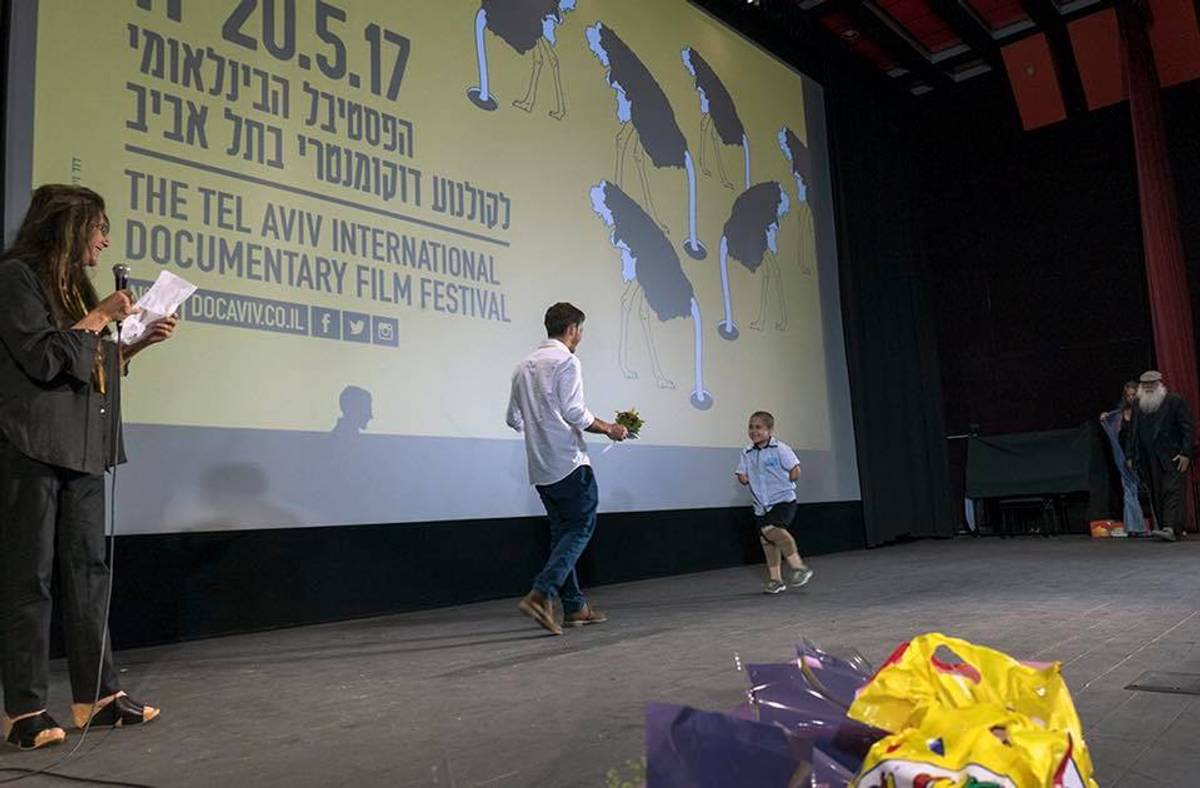The Palestinian-Israeli Conflict Through the Eyes of ‘Muhi’
Muhi—Generally Temporary tells the story of a Palestinian boy who travels to an Israeli hospital for a life-saving treatment, with his grandfather by his side




Like many Palestinian stories, Muhi’s begins at a checkpoint.
As a newborn baby with a congenital disease, which could be fatal without the proper care, Muhi had no prospects for survival in the Gaza Strip. His most promising and plausible option was to secure access from his hometown of Khan Younis to an Israeli hospital for a life-saving treatment. With heavy travel restrictions in place at the Erez Crossing, Muhi’s high-risk condition presented a rare exception for passage.

Muhi’s journey is now the subject of a new Hebrew-and-Arabic-language documentary titled Muhi—Generally Temporary. In the opening sequence, the camera pans over the Erez Crossing where Muhi’s ambulance will soon pass through with the assistance of Israeli human rights activist, Buma Inbar. From there, Muhi will travel to the Tel HaShomer Hospital in Ramat Gan (also known as The Chaim Sheba Medical Center) for an urgent procedure that requires doctors to amputate Muhi’s lower arms and legs in order to save his life. By Muhi’s side is his grandfather, Abu Naim, who would care for him tirelessly over the next seven years, to the present, while Muhi’s parents remain in Gaza with their other children.
Muhi—Generally Temporary is a collaborative directorial debut from Israeli photographer Rina Castelnuovo-Hollander and American video journalist Tamir Elterman, who recently spoke after a screening of their documentary at the Film Society at Lincoln Center in New York City as part of the Human Rights Watch Film Festival, now in its 28th year. Castelnuovo-Hollander said that her initial interest was to document Palestinians and Israelis as colleagues and friends; she found her subjects in Inbar and Abu Naim, who share an easy friendship in the film (albeit one entangled in Israeli-Palestinian politics). What links them most poignantly is their mutual dedication to Muhi’s well-being: As Castelnuovo-Hollander explained, “They’re united against one enemy—illness.”
John Biaggi, the creative director of Human Rights Watch Film Festival who oversees the festival’s lineup, pointed to Abu Naim’s storyline as essential to understanding the Israel/Gaza divide. Biaggi notes that Abu Naim is trapped as a non-citizen in Israel with no visa to rent an apartment or work permit or find a job. “The boy and his grandfather can’t leave the hospital grounds, so they’re basically stuck in this concrete building,” he said.
As such, the Tel HaShomer hospital becomes both a sanctuary and prison in the film. Muhi thrives there, but he can’t leave. His mother twice makes the trip from Gaza to visit him but her travel across the border is fraught with complications. The screening coincided with the 10th anniversary of Hamas’s takeover of the Gaza Strip.
Omar Shakir, the Israel and Palestine Director of Human Rights Watch, remarked during the film’s post-screening talkback that the Israel/Gaza border maintains tight travel restrictions in both directions and, in the film, Abu Naim has just as much difficulty traveling back to Gaza. As Jews, Castelnuovo-Hollander and Elterman were not permitted to film in Gaza and had to rely on a separate film crew. “We had no direct contact,” Castelnuovo-Hollander said of the scenes filmed across the border.

One particular Gaza scene, the only one filmed in Muhi’s family’s home, depicts Abu Naim with his daughter and son-in-law discussing Muhi’s condition. Muhi’s father, cynical and wary of Israelis, expresses distrust of his son’s caregivers at Tel HaShomer Hospital. Abu Naim has lived with the hospital staff for years, and he replies with certainty that Muhi, short for Muhammad, is in the best possible environment. More so, Abu Naim has developed close friendships with Israelis, like Inbar. He turns to his son-in-law and shifts from Arabic to Hebrew, saying, “Yesh tikvah”—there’s hope.
Amidst these heavy circumstances, the portrayal of Muhi is uplifting: He is irrepressibly radiant, a documentarian’s dream. When he tries on his prosthetic legs, he takes off with a speed he didn’t know he had as a smile spreads across his cherubic face. Naturally affectionate, he embraces nearly everyone he sees: Inbar, the hospital volunteers, and, most lovingly, his grandfather—again and again and again. The ease with which he expresses love and affection toward the many Israelis he’s come to know makes the film’s political backdrop seem evermore futile. “The humanity of the characters exposed the absurdity of the conflict,” Elterman stated simply in the post-screening discussion.
When Muhi—Generally Temporary screened in Tel Aviv on May 13 Castelnuovo-Hollander was delighted to see around 400 people pack into the theater. As she told Tablet, “Volunteers at Muhi’s hospital, both Israeli Jews and Israeli Arabs, spread the word about the film.” A 10-minute standing ovation followed the screening. “The reaction was incredible,” she recalled. “Everyone lives the conflict daily. Everyone found something to relate to.”
Muhi—Generally Temporary screened near Washington, D.C. last week, after two New York showings. The film is currently seeking U.S. distribution.
Lonnie Firestone writes about theater, and lives in Brooklyn, New York.